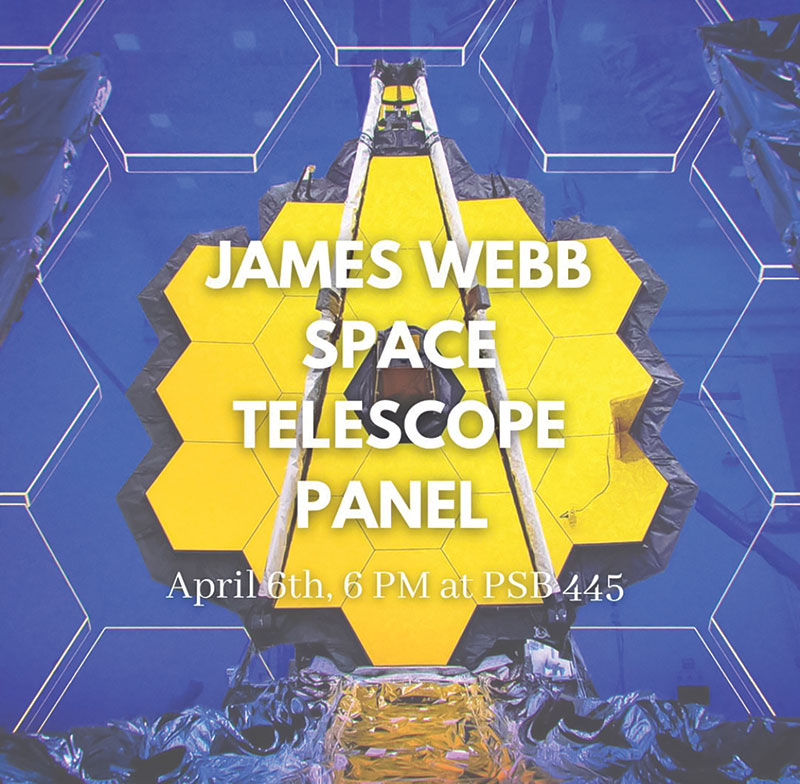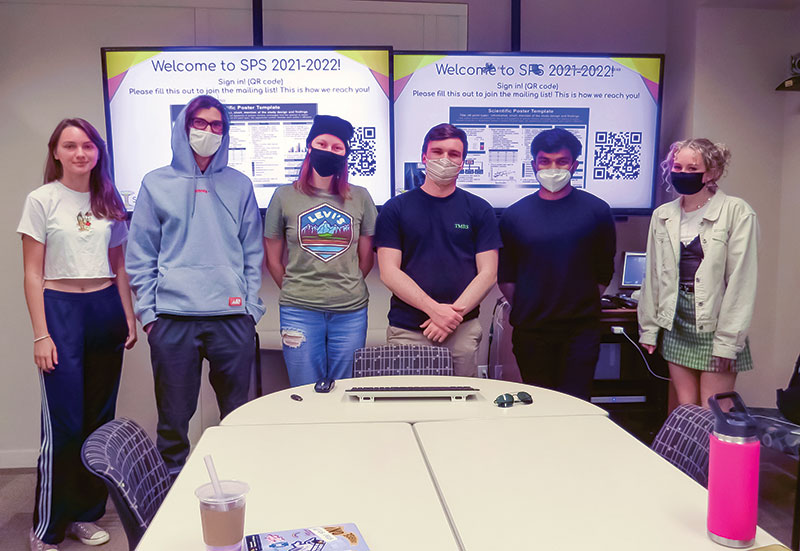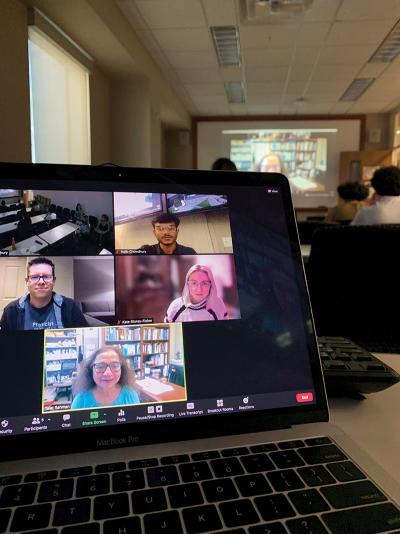What’s in a Name
Fall
2022
Interactions - SPS Chapters in Action
What’s in a Name
JWST prompts a discussion about diversity and inclusion in physics
By:Rajib Chowdhury, SPS Chapter President, University of Central Florida
 “So who was the JWST actually named after?” This question came up after an SPS chapter meeting at the University of Central Florida (UCF) during which we talked about developments in high-energy physics and cosmology. Many of our eager, astronomy-oriented undergraduates were buzzing about the James Webb Space Telescope’s (JWST’s) recent launch and the fascinating science it would reveal. I had asked this same question a while ago, and unbeknownst to most of our chapter members, it had already become the basis for a future event—an event that would turn out to be one of the most popular and meaningful activities of the year.
“So who was the JWST actually named after?” This question came up after an SPS chapter meeting at the University of Central Florida (UCF) during which we talked about developments in high-energy physics and cosmology. Many of our eager, astronomy-oriented undergraduates were buzzing about the James Webb Space Telescope’s (JWST’s) recent launch and the fascinating science it would reveal. I had asked this same question a while ago, and unbeknownst to most of our chapter members, it had already become the basis for a future event—an event that would turn out to be one of the most popular and meaningful activities of the year.
 After asking myself who James Webb was, I had come to learn that there was a fair bit of controversy surrounding him and the naming of the telescope. Webb was the administrator of NASA during much of the 1960s and has been accused of deliberately letting go of NASA employees because of their sexual orientation. This aligned with similar governmental directives spanning the federal workforce, which historians have labeled the Lavender Scare (see https://en.wikipedia.org/wiki/James_E._Webb).
After asking myself who James Webb was, I had come to learn that there was a fair bit of controversy surrounding him and the naming of the telescope. Webb was the administrator of NASA during much of the 1960s and has been accused of deliberately letting go of NASA employees because of their sexual orientation. This aligned with similar governmental directives spanning the federal workforce, which historians have labeled the Lavender Scare (see https://en.wikipedia.org/wiki/James_E._Webb).
This information prompted our SPS chapter leadership to plan an event. We didn’t want to limit the topic to the naming of the JWST. Instead, we hoped to spark a larger discussion about physics academia and its disinclination toward tackling issues of discrimination. We also wanted to address the lack of diversity within our department and physics student cohort. We also wanted to initiate actionable goals for our own physics department. We decided that the best way to accomplish these goals was through an interactive panel where such concerns could be easily expressed. We applied for and received a Future Faces of Physics Award from SPS National to support honorariums for the panelists, marketing materials, and refreshments for attendees.
We sought to incorporate a variety of voices on the panel, keeping with our theme of diversity and inclusion. Our panel ultimately consisted of Kate Storey-Fisher, a PhD candidate in the Center for Cosmology and Particle Physics at New York University and a NASA FINESST fellow; Adam LaMee, a physics content expert on the Florida Department of Education’s teacher certification exams and PhysTEC teacher-in-residence for the UCF physics department; and Dr. Talat Rahman, a leader in computational physics and nanoscience and a physics professor at UCF.
We knew that the audience would have different backgrounds, and we wanted to make sure everyone could get something out of the event. This prompted us to provide some historical context during the panel, including current and past federal government policy and legal history regarding LGBTQ+ issues.
Attendees were engaged throughout the event, asking many questions and contributing their own thoughts. We discussed ways in which we thought the larger academic community should change in areas such as access to laboratory resources and computing power, as well as how we as individuals can make change through our SPS chapter events. We decided to develop an end-of-year report compiled by students and edited by SPS officers that offers advice to our department on outreach events to reduce gender and racial inequities.
The Future Faces of Physics panel was an excellent introduction to the power of physics outreach for many of our attendees. Our goal was to bring awareness to the controversy regarding the naming of the JWST and why the topic is relevant to all of us, regardless of whether we are directly impacted by the choice of name. Given the success of this event, we plan to hold similar events over the next academic year aimed at increasing awareness of issues related to diversity and inclusion and increasing participation in physics.

Get Money for Your Chapter Event or Program!
Future Faces of Physics Awards of up to $500 are available for chapter programs or events that promote physics across cultures. Learn more at spsnational.org/awards/future-faces.
